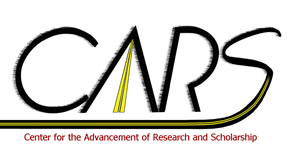Interpreting and Utilizing Non-verbal Communication: An Embodied Approach to Teaching and Learning
Location
Hart 113
Start Time
11-5-2017 12:50 PM
End Time
11-5-2017 1:35 PM
Description
Researchers estimate that up to 93% of human communication and social meaning occur through non-verbal signals, expression, and behavior. Although crucial to understanding others and ourselves and effectively functioning in the world, body movement leaves no evidence or artifacts. Therefore, skills in bodily-kinesthetic and personal intelligences often remain unconscious, underdeveloped, and underutilized in educational settings. Through an embodied approach to learning—observing, investigating and analyzing postural and gestural movements—participants in this inquiry-based experiential workshop gain skills to interpret and use nonverbal behavior for application to teaching, learning and everyday life.
Session Objectives Include: Investigate and identify postural and gestural expressions and behaviors; apply skills in movement observation and analysis; relate skills in movement observation and analysis to teaching and learning; evaluate implications of non-verbal communication in education; and, generate strategies for applications in teaching and learning.
Interpreting and Utilizing Non-verbal Communication: An Embodied Approach to Teaching and Learning
Hart 113
Researchers estimate that up to 93% of human communication and social meaning occur through non-verbal signals, expression, and behavior. Although crucial to understanding others and ourselves and effectively functioning in the world, body movement leaves no evidence or artifacts. Therefore, skills in bodily-kinesthetic and personal intelligences often remain unconscious, underdeveloped, and underutilized in educational settings. Through an embodied approach to learning—observing, investigating and analyzing postural and gestural movements—participants in this inquiry-based experiential workshop gain skills to interpret and use nonverbal behavior for application to teaching, learning and everyday life.
Session Objectives Include: Investigate and identify postural and gestural expressions and behaviors; apply skills in movement observation and analysis; relate skills in movement observation and analysis to teaching and learning; evaluate implications of non-verbal communication in education; and, generate strategies for applications in teaching and learning.

Comments
Moderator: Mark Kemper